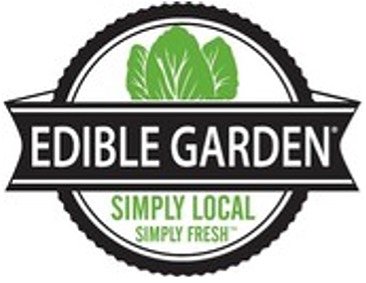
Edible Garden's Expansion Signals Shift Towards Local, Sustainable Produce
Controlled environment agriculture company expands retail footprint in Northeast, riding consumer demand for fresh, locally-sourced food while navigating a challenging financial landscape.
Edible Garden's Expansion Signals Shift Towards Local, Sustainable Produce
NEW YORK, NY – November 20, 2025
Edible Garden AG Incorporated is expanding its reach into key Northeast markets, bringing its organically-grown herbs and produce to DUMBO Market in Brooklyn/Queens and Marrazzo’s Market in New Jersey. This move underscores a growing consumer preference for locally sourced, sustainable food options and highlights the potential – and challenges – of controlled environment agriculture (CEA) to disrupt traditional produce supply chains.
The Rise of Regional Food Systems
The expansion isn't just about adding retail partners; it’s a strategic response to a fundamental shift in consumer behavior. Demand for transparency and sustainability in the food system is escalating, driving a desire for produce grown closer to home. “Consumers are increasingly aware of the environmental impact of their food choices,” noted one industry observer. “They want to know where their food comes from, how it’s grown, and they’re willing to pay a premium for it.”
Edible Garden’s focus on CEA allows for year-round production, reduced water usage, and minimized reliance on pesticides – all key factors appealing to environmentally conscious shoppers. By partnering with specialty grocers like DUMBO Market and Marrazzo's Market, known for their curated selections and commitment to local sourcing, Edible Garden is positioning itself at the intersection of consumer demand and sustainable practices. These grocers prioritize quality and freshness, often seeking partnerships with local farms and producers who share their values.
Navigating the CEA Landscape
While the potential of CEA is significant, the industry faces unique challenges. High initial investment costs, energy consumption, and the need for specialized expertise create barriers to entry. Edible Garden’s financial performance reflects these headwinds. While the company reported a 9% year-over-year revenue increase in Q3 2025, it also faces considerable losses, increasing 46.5% in 2024.
“The CEA sector is incredibly capital intensive,” explained a financial analyst specializing in agricultural technology. “Companies need to demonstrate a clear path to profitability to attract investors and sustain growth.” Edible Garden is attempting to address this by diversifying its product line, expanding into non-perishable CPG units, and targeting international nutraceutical markets. These efforts reflect a broader trend within the CEA sector, where companies are seeking to reduce reliance on commodity produce and develop higher-margin products.
Competition within the CEA space is also intensifying. Companies like AppHarvest, with significant funding and large-scale facilities, are rapidly expanding their operations. Edible Garden differentiates itself through its patented technologies, including GreenThumb software for optimizing growing conditions and self-watering displays designed to extend shelf life and reduce waste. The company holds numerous patents related to CEA technologies, aiming to improve efficiency and sustainability throughout its operations.
Technology and Innovation at the Core
Edible Garden’s strategy hinges on innovation. Its proprietary GreenThumb 2.0 software optimizes growing conditions, reducing energy consumption and maximizing yields. The company also emphasizes its commitment to sustainable packaging, utilizing recyclable materials and biodegradable alternatives. These efforts are aligned with broader industry trends towards closed-loop systems and circular economy principles.
The company’s focus on sustainable practices has garnered recognition, including its membership in Walmart’s Project Gigaton and a sustainability leadership award. This commitment to environmental responsibility resonates with consumers and positions Edible Garden as a leader in the emerging field of sustainable agriculture. Beyond technology, Edible Garden's patented self-watering displays are not just about shelf appeal. They represent a practical solution to reduce food waste at the retail level, extending the life of their products and potentially offering retailers significant cost savings.
Edible Garden's aquaculture technologies, while less prominent in the recent expansion announcement, further highlight the company's diversified approach. Developing closed-loop systems for aquaculture represents a potentially significant advancement in sustainable food production, providing a resilient and environmentally responsible source of protein. While this is a long-term strategy, it reflects the company's commitment to innovation across multiple agricultural sectors.
